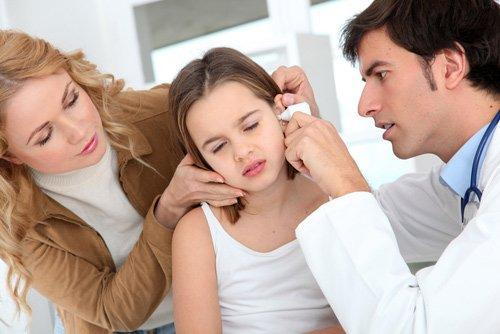 Ear infections are incredibly common in children, with the most prominent sign of a problem being an earache. In children, ear infections can be a sign that something else is wrong. For this reason, you should bring your child to the doctor when you suspect that your child has an issue.
Ear infections are incredibly common in children, with the most prominent sign of a problem being an earache. In children, ear infections can be a sign that something else is wrong. For this reason, you should bring your child to the doctor when you suspect that your child has an issue.
If you are still curious about ear infections or suspect your child may have an infection, learn more. Read on to learn more about this common infection.
What Causes Ear Infections?
The middle ear often becomes infected when a child has a cold, flu, or other type of respiratory infection. The middle ear experiences these problems as a result of its connection to the respiratory tract via the Eustachian tube.
Children experience infections more often than adults because the Eustachian tube is soft and has yet to develop completely. The tube can become clogged, which makes the inside of the ear become moist. The middle ear can become a breeding ground for bacteria.
Avoid the flu to prevent ear infections. You may be able to prevent flu in your child by having him or her receive the flu vaccine. The PCV13 vaccine can also prevent infection by restricting exposure to respiratory issues and the flu.
Limiting the amount of time your child spends with other sick children is also beneficial. Children who attend day care are more likely to be diagnosed with ear infections than their stay-at-home counterparts.
Ear infections are also more common in children who go to bed with a bottle of milk. Children who are prone to infection may experience it more when they are feeding while laying down on their backs. These children may experience fewer symptoms if they are more upright when they eat.
Children who live with cigarette smokers have more exposure to smoke, and thus they experience respiratory issues more often. A child who lives with respiratory issues is more prone to ear infections.
How Can You Tell Your Child Has an Ear Infection?
The doctor is the best judge of whether or not your child has an infection because they can look inside the eardrum. The drum will be red and perhaps even swollen. If the doctor is unsure, he or she can perform additional tests.
You might notice the signs of an infection at home. For instance, you might notice your child tugging at her ears, feeling fussy, struggling to sleep at night, or showing signs of a fever. Many parents also notice fluid running out of their child's ears.
How Do Doctors Treat Ear Infections?
Doctors typically treat ear infections with antibiotics. Amoxicillin is one of the more popular antibiotics, and patients typically take it for a week or so. You should begin to see signs of improvement within this time frame. If the infection persists, notify the doctor right away.
In the meantime, consider providing your child with over-the-counter pain relievers. Some pain relievers come in the form of ear drops, which may be easier to administer to your child.
Without proper treatment, infections can lead to more serious problems. For instance, children may experience hearing loss. Oftentimes, this hearing loss is temporary and can be reversed.
Some children have even faced meningitis as a result of ear infections. Meningitis can lead to many different types of risks, including hearing loss, cognitive difficulties, seizures, and even death. As you can see, treatment is critical to your child's health.
Our pediatric team is ready to help you better understand your child's ailment. Do you have questions about your child's ear health? Call Valley Pediatric Clinic to set up an appointment.
